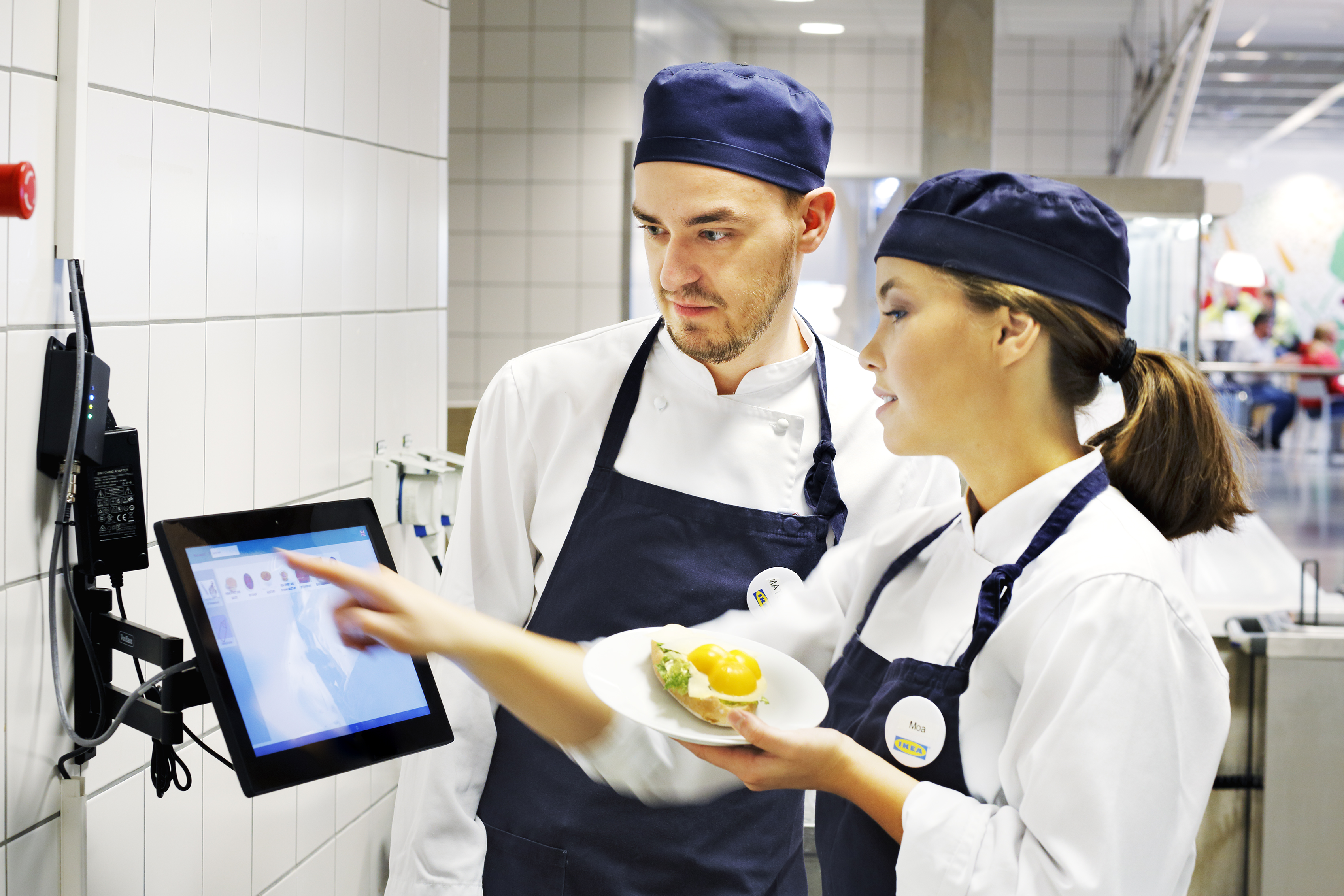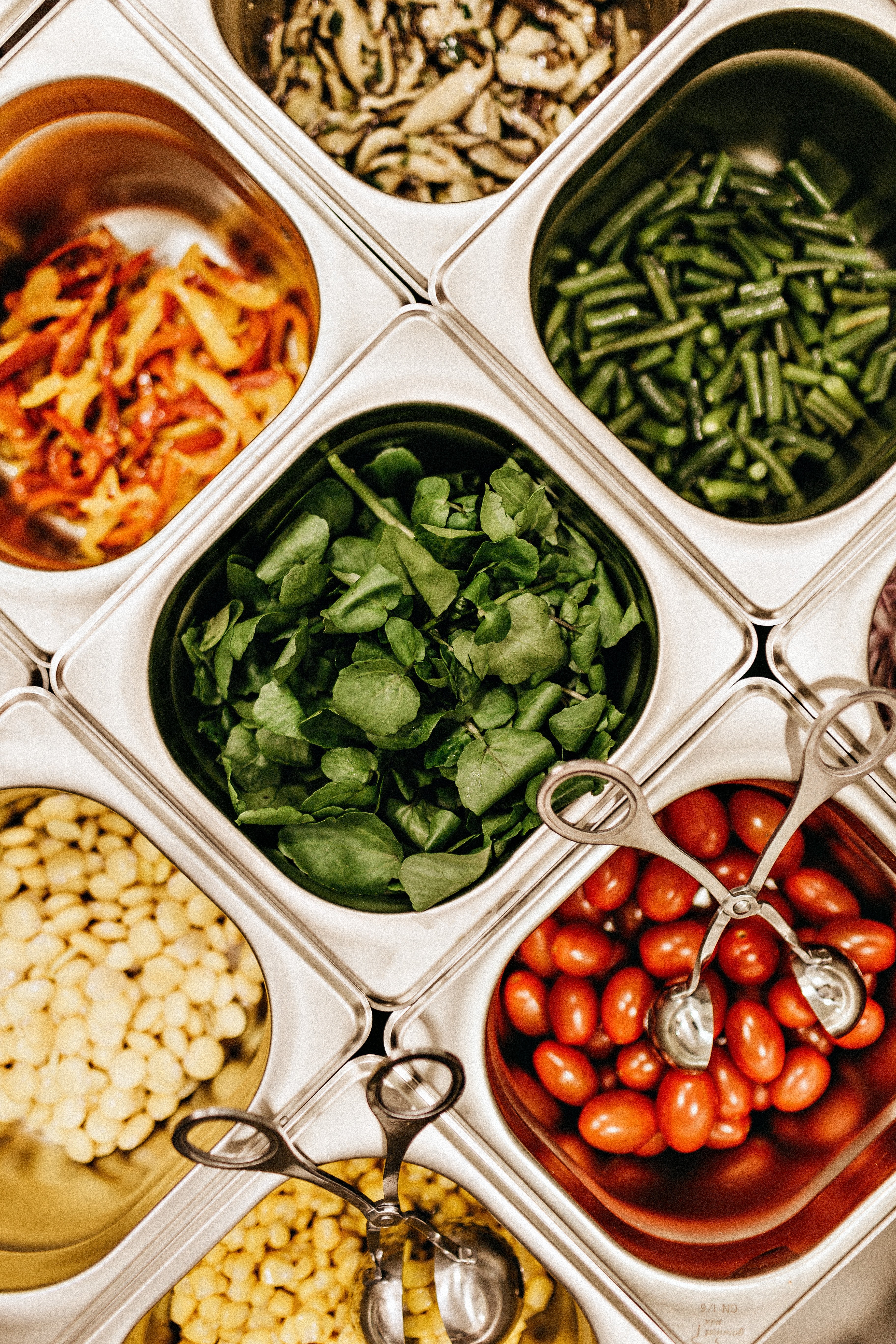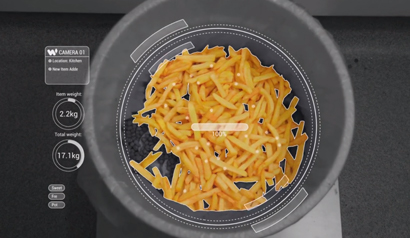.jpg)
The business case for using food waste technology
Food waste technology solutions (sometimes referred to as smart bins) are making kitchens more efficient and sustainable with AI

Jump to a section:
What is food waste technology?

Food waste technology is an emerging band of solutions that are utilising the latest technologies to solve the problem of food waste.
This is a new group of technologies aimed at tackling a problem that, until recently, there was little awareness or understanding of.
As food waste takes place across our food system, there are numerous waste reduction technologies that are suited to specific parts of the supply chain.
This plethora of new innovation, driven by artificial intelligence (AI), is helping companies to increase revenues and become more sustainable.
There is new AI available to farmers to optimize their crops and reduce pesticide use, advances in material sciences to extend the life of food, AI technology to help commercial kitchens reduce waste, and new packaging to tell consumers when the food is still good to eat.

What impact can waste reduction technologies have on the world?
According to recent research done by McKinsey, Google and the Ellen MacArthur foundation, the impact of AI in designing out waste in our food system could represent ‘an estimated economic opportunity of up to $127 billion a year in 2030, calculated as growth in top-line revenue’.
This financial opportunity is set within the wider context of how AI could add an additional $13 trillion to global economic activity by 2030.
The financial potential of optimising the food system and reducing waste should interest every business across the industry - regardless of size. Thousands of restaurants across the world are already using technology to measure and manage food wastage, with AI set to transform how hospitality operates by automating much of this process.
On a social level, investing in waste reduction technologies gives our society a better chance to end world hunger. There will always be some waste inherent in the system, but this can be minimised as far as possible through waste technologies that eat into society’s food waste problem.
The FAO is clear in its guidance about how the food system needs to be constructed to meet the future needs of the planet: we will need to produce 70% more food by 2050.
Investment in food waste technology can provide a strong return on investment
Food waste technology can cut costs by
8-12%
of total food spend
Our clients cut their food costs by between 2 and 8%
See how 3 hotels in Asia have successfully cut waste and increased profitability in their kitchens
Food waste technologies can result in
1000% ROI
In year one
Typical ROI 200%-1,000% within the first year of using Winnow
See how IKEA Bergen reduced food waste by 45% over the first 12 weeks
The tech innovations that could reduce food waste
There are a number of technology solutions that are being developed to solve the problem of food waste. This section looks into how these technologies work to solve the problem of food waste, and their key differences. The scale of the food waste challenge demands solutions that utilise all aspects of new technology - and cover a range of emerging technologies helping to reduce food waste.
Food waste machine learning
Machine learning and AI offer the potential of optimising areas of the food business and dramatically reducing waste. For example, data collected by a group of data scientists at Blue Yonder predict that AI and machine learning could save £144 million each year for the group of eight biggest UK supermarkets. This is based on four key benefits that machine learning and AI can deliver to reduce food wastage. Fundamentally, this technology will help in the following ways:
- Forecasting: AI can now significantly improve the forecasting of demand by taking into account vast data sets. By processing this information at great speed, retailers will have a more accurate signal of the likely demand for food, thus minimising waste.
- Inventory management: through a better understanding of the risk of food loss and wastage, retailers can find the right balance of managing inventory of every product in the store.
- Pricing: AI can help to set responsive pricing that adjusts the price depending on the expiry date of the product.
- Sensing transportation disruption: by analysing weather and transport disruption, machine learning can help grocery retailers by advising alternative routes to ensure the risk of food waste is mitigated.
Data capture vision technology
Another growing area of food waste technology uses computer vision technology to capture and identify images of food. This technology breaks images down in detail and then makes the computer analyze that information to help us understand what the image is.
This data capture vision technology has at least two main benefits. Principally, computer vision can assist companies to measure and manage their food waste throughout their operation.
In 2019, Winnow launched food waste AI into the commercial kitchen at scale. This development automates the process of collecting food waste data at the point it enters the bin, collates this data and presents it back to the kitchen team in a useful format. This insight can then be used to prevent food wastage in the future.
There are also some companies developing computer vision technology to detect unripe or contaminated food. This will help to automatically detect the quality of food in factories and warehouses.
Biotech: can insects eat all of our food waste?
There are other technologies being developed that attack the problem from a different angle. Could insects be the solution to our food waste problem?
Several entrepreneurs are turning to insects to help turn food waste into other valuable products. For instance, the larvae of the black soldier fly can feast on up to four times its own body weight each day, and at the end of the life, can either turn into natural fertiliser or fish food.
In China, a billion cockroaches are fed with 50 tonnes of kitchen waste each day, which is also nutritious food for pigs and other livestock. Utilising insects in this way could mean less farmland would be required to grow feed for animals.
How hospitality businesses are using AI

Several hospitality businesses within retail and the hotel business are leveraging AI to reduce costs in their business and run more efficient operations.
So which are the companies that are leading this transformation?
IKEA were at the forefront of bringing AI into the commercial kitchen. They partnered with Winnow to develop Winnow Vision and have already seen some great results. Winnow Vision is deployed in IKEA stores across the UK, and have cut food waste by an average of 50% across all the stores.
In the UAE, Emaar Hospitality Group were the first company to use AI in the Middle East to tackle food waste in their kitchens. One of their properties, the beautiful Armani Dubai hotel set in the world’s tallest building - the Burj Khalifa at 828m - uses Winnow in their kitchen. The General Manager at the Armani Dubai hotel, Mark Kirby, talks about how technology is used in their operation to cut waste and costs.
Elsewhere in the hotel industry, IHG hotels are pushing their sustainability agenda and the ambition to reduce waste by 30% with the use of AI. This has started in a select group of properties with the ambition to quickly scale in 2020.

How are supermarkets and grocers using technology to reduce food waste?
US grocer Kroger are extending their line of produce with the edible coatings made by Apeel Sciences. In the UK, Asda are also trialing the new coating technology on their products.
For Kroger, this is another pillar in their ‘Zero Hunger Zero Waste’ program and reduce that can help to reduce waste within their operation.
One of the biggest food businesses in the world, Kroger are playing an instrumental role in supporting new technologies with the dual ambition of achieving a zero hunger society that is equipped with tools to reduce waste.
Winnow were one of 7 companies that were awarded a food waste grant from Kroger to propel solutions in the US and around the world. This initiative demonstrates Kroger’s support in tackling the problem of food waste, even if the technology does not directly benefit their business.
How we've helped clients reduce food waste in their industry
Winnow is the leading food waste technology for the contract catering, hotels & casinos, quick service restaurant, supermarket, and cruise ship sectors. Find out how we've helped our clients.
Frequently Asked Questions
What are the benefits of food waste technology?


Reduction technology has three main benefits to managing food wastage in kitchens; it helps to reduce food cost, it lessens environmental impact, and improve operational efficiency as the team spends less time preparing food that ultimately goes to waste. Traditionally, this waste was either not tracked or it took a long time to do.
Can you compare technologies for food waste management?


While comparing the specifics of each technology can be difficult, Winnow is the only provider of food waste technology that includes AI and can deploy around the world. For businesses with hundreds or thousands of kitchens, the inclusion of AI can provide more accurate data to make waste reductions. On average, clients using Winnow reduce waste by over 50%.
What is the impact of food waste technology on restaurants?


Data analysed by Winnow in over a thousand hospitality kitchens around the world suggest that waste levels are on average between 4-12%. However, many kitchens only factor in 1-3% in waste costs from food waste. Therefore, the impact of reducing food waste in your kitchen could be a reduction in food costs are between 3-8%.
How much could I save by managing food waste with Winnow?


Kitchens using Winnow’s analytics can expect to cut food waste in half in 6-12 months. The financial savings range from a small kitchen that could save $5 - 15,000 a year, and go up to $250k+ for a very large operation like a casino or cruise ship.



